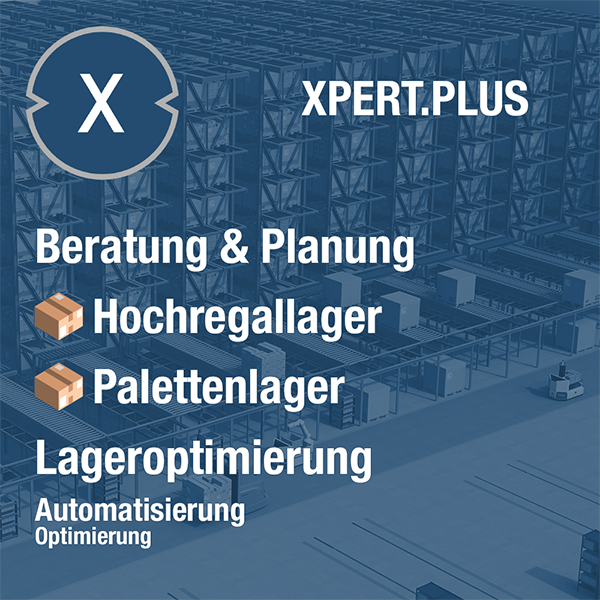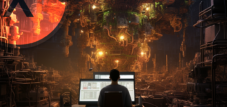On the topic of artificial intelligence, automation and metaverse: There is no success without people with vision
Language selection 📢
Published on: March 6, 2024 / Update from: March 6, 2024 - Author: Konrad Wolfenstein

Whether AI, robotics or metaverse: Without the person with vision, none of this is useful - picture: xpert.digital
🚀🧠 The future of work and the influence of man
🤖 artificial intelligence and their effects
In a world that changes at breathtaking speed, the human spirit and the ability to paint the future play a key role in success. This is an era that is defined by groundbreaking technologies such as artificial intelligence (AI), the metaverse, extended reality (XR), robotics and automation. These technologies have the potential to change our world of work in a way that we could hardly have imagined a few decades ago. Regardless of the rapid technological progress, there is a fundamental truth: Without people who go with visions and enthusiasm, no real success can be achieved.
In order to understand the importance of visionaries in the modern world of work, it is important to shed light on the role of new technologies and how they have the potential to form our society. Artificial intelligence, as one of these pioneering technologies, has already started to transform almost every aspect of our lives - from the way we work, to the way we shape our leisure. AI systems can recognize patterns in data, make forecasts and perform tasks that used to only require human thinking. This leads to efficiency increases and enables human talents to be used where they can make the biggest difference: with creative and strategic tasks.
🌐 the metaverse and extended reality
Metaverse and extended reality open up new realities that have the potential to change the way we interact, learn and work. These immersive virtual worlds offer a platform for cooperation and innovation that blur bounds between physical and digital presence. By enabling a new level of networking and exchange, they create spaces in which creativity and visions are not limited by the physical restrictions in our world.
🤖 Robotics and automation in everyday work
Robotics and automation also transform the world of work by taking on repetitive and physically demanding tasks, so that people can concentrate on more complex, strategic and creative tasks. This not only creates more efficient workflows, but also opens up new opportunities for personal and professional development.
🧑🔧 the irreplaceable role of man
Despite this technological advances, however, the irreplaceable role of humans remains undisputed. Ultimately, it is the people who invent, develop and implement these new technologies. Even more, it is the people with their unique skills for imagination, critical thinking and emotional intelligence that are able to draw full benefits from these technologies. A machine may be able to analyze data faster than a person, but it cannot do the creative nor the ethical considerations that are necessary to really make innovations sensible and human -centered.
🔄 innovation and ethical considerations
The key role of human visionaries is not only evident in the development of new technologies, but also in the way in which companies and industries can consist of an increasingly competitive environment. Companies that manage to promote a culture of innovation in which employees are encouraged to think and act creatively are often those who are successful in the long term. This requires managers who are willing to take risks and give their teams the freedom to explore new ideas.
It is also crucial how companies and companies deal with the ethical challenges that technological progress brings. Questions of privacy, data security, job security and social justice must be carefully weighed. In this discussion, it is again the visionary thinkers who have to show the way with empathy and a sense of responsibility.
The role of man in the future of work must not be underestimated. While the new technologies undoubtedly change our world, it is ultimately the people with their visions, their commitment and their enthusiasm, which are crucial for how these technologies are used and what benefits they bring for humanity. It is human creativity, the ethical considerations and the ability to think beyond the box that indicate the way to a future, in which technology and humanity go hand in hand. In an age in which technological progress is apparently limitless, we must never forget that our greatest capital is not in our inventions, but in the people who use these inventions for the benefit of everyone.
📣 Similar topics
- 🔮 The future of work: human visions and technological progress
- 🌐 the metaverse and the future of cooperation
- 🤖 Man and machine: The evolution of the world of work
- 🚀 innovation and creativity in a changing labor landscape
- 💡 the role of visionaries in the era of artificial intelligence
- 👥 the importance of human managers in an automated world
- 🔒 Ethics and responsibility: challenges of technological progress
- 🌱 A culture of innovation: human -centered companies
- ⚖️ The balance between technology and humanity in the future of work
- 🎨 Creativity and empathy: The key to the successful use of new technologies
#️⃣ hashtags: #zukunstreiskar #technology #innovation #ethik #henschlichkeit
📌 Other suitable topics
🎯🎯🎯 Benefit from Xpert.Digital's extensive, fivefold expertise in a comprehensive service package | R&D, XR, PR & SEM

AI & XR 3D Rendering Machine: Fivefold expertise from Xpert.Digital in a comprehensive service package, R&D XR, PR & SEM - Image: Xpert.Digital
Xpert.Digital has in-depth knowledge of various industries. This allows us to develop tailor-made strategies that are tailored precisely to the requirements and challenges of your specific market segment. By continually analyzing market trends and following industry developments, we can act with foresight and offer innovative solutions. Through the combination of experience and knowledge, we generate added value and give our customers a decisive competitive advantage.
More about it here:
🔍 in this fast -developing world 🌍
📜 meaning of education and willingness to learn 📘
In this rapidly developing world, the question arises as to how we can maintain the balance between technological progress and human well -being. The key to this lies in education and lifelong willingness to learn. In order to be able to keep up with the rapid changes, education systems worldwide must be aimed not only to convey technical know-how, but also critical thinking, creativity and social skills. These skills enable people to adapt to new work environments, to develop innovative solutions for complex problems and to deal ethically responsibly with the challenges of technological change.
💼 Role of companies 🏢
The role of companies is also crucial in this context. You have to invest in the further training of your employees and promote a culture of curiosity and lifelong learning. This is the only way to fully exploit the advantages of the new technologies without neglecting the human component. In addition, it is important that companies, including work environments, create diversity and enable all employees to develop their full potential. In such an environment, innovations can thrive, and the combination of technological knowledge and human ingenuity leads to sustainable success.
🏛 meaning of governments and international organizations 🌐
The role of governments and international organizations is also decisive. You have the task of creating the framework for a fair and inclusive technological change. This includes the development of guidelines and laws that protect the rights of employees, promote access to education and further education and ensure that the benefits of technological progress are distributed fairly. In addition, it is necessary to invest in research that deals with the social effects of new technologies and shows ways of being used for the benefit of society.
🤖 Ethical responsibility of the technology developer 💡
Another important aspect is the ethical responsibility of the developers and users of new technologies. You must ensure that your inventions and applications are not only technically progressive, but also socially responsible. This requires a dialogue between technology experts, politicians, companies and civil society to develop common standards and best practices that ensure the protection of privacy, the security of data and the promotion of general well -being.
🌟 human judgment, empathy and creativity 🌈
Man in the age of digitization and technological change remains indispensable. The greatest challenges of our time - be it climate change, social inequality or the ethical questions that are raised by technological progress - require human judgment, empathy and creativity. Only through the collaboration of people with visions that are able to think beyond the horizon and to use technologies in the service of society can we shape a future that is not only technologically progressive, but also just and worth living. In this sense, it is the people behind the visions and goals that are the most powerful driving forces for progress and that ensure that technology serves - and not the other way around.
📣 Similar topics
- 🎓 The role of education in the digital age
- 💼 company and lifelong learning
- 🌐 government policy for fair technological change
- 🤝 ethics and responsibility in technology development
- 🧠 human creativity in a digital world
- 📚 The meaning of lifelong learning
- 🌱 Innovation through diversity and inclusion
- 🤖 technology and social responsibility
- 🌍 Global cooperation for a fair change
- 🚀 human visions in the age of progress
#️⃣ hashtags: #formation #technology #innovation #ethik #gesellschaft

Xpert.Plus warehouse optimization - high-bay warehouses such as pallet warehouses consulting and planning
🌍 the design of a human -centered future 📚
📘 in the design of this future -proof, human -centered world
Education and lifelong learning play a crucial role in the design of this future -proof, human -centered world. It is essential that educational institutions initiate a rethink at all levels by adapting curricula that are not only geared towards learning facts, but also to the development of skills that are essential in the 21st century: critical thinking, creativity, interdisciplinary learning, emotional intelligence and the ability to collaboration. These skills not only prepare individuals to keep up with technical innovations, but also to make these innovations responsible and question them responsibly.
📖 The importance of this educational change
The importance of this educational change can hardly be overestimated. In a world in which knowledge is out of date as soon as ever, the ability to learn, question and adapt, more valuable than knowledge.
🌱 But education alone is not enough
But education alone is not enough to shape the future. Collaboration is crucial in an increasingly networked world. Problems such as climate change and global inequalities cannot be solved on their own. They require cooperation across borders and disciplines. Companies, governments and civil society groups have to work together with academics and technology experts on solutions that are both innovative and inclusive. The goal must always be to use technology in such a way that it serves to man and not vice versa.
🤖 Technology in line with our values
To achieve this, it is crucial that we create the space for discourses in which the ethical dimensions of technological progress are discussed. These discourses must include all votes: from those who develop technologies to those who use them to those affected by their effects. Only through such an inclusive dialogue can we ensure that the technology is developed in accordance with our values and for the well -being of society.
💡 Ultimately it is up to us
Ultimately, it is up to us - as individuals, as communities and as a global society - to decide how we want to use the tools and technologies that we develop. We have the opportunity to create a world that is not only technologically progressive, but also fair, inclusive and worth living. However, this requires that we actively shape and follow our visions for the future instead of being driven by the waves of technical progress.
🌟 The human factor
The human factor remains indispensable for the design of a desirable future. It is people, with their visions, their commitment and their ability to empathy that make the difference. The challenge and at the same time the chance of our time is to use and shape technology in such a way that it complements and expands these human qualities instead of replacing them. To the extent that we succeed, we can shape a future that is not only technologically innovative, but also in -depth human.
📣 Similar topics
- 🌍 Education for the 21st century: skills that count
- 🌱 Lifelong learning as the key to the future of the future
- 💡 The revolution in the classroom: more than just knowledge of facts
- 🤖 Man and technology: a symbiotic relationship
- 🔍 critical thinking and creativity in the age of information
- 🤝 master global challenges together: the power of collaboration
- 🚀 Ethically use technology: a discourse for everyone
- 🌟 The role of educational institutions in a changing world
- 📚 From knowledge consumers to the problem solver: the evolution of learning
- ❤️ Humanity in the core technological progress
#️⃣ hashtags: #Bildingim21 century #lebenlanges learning #interdisciplinary learning #technology and society.
We are there for you - advice - planning - implementation - project management
☑️ Smart City & Factory: Industry expert for energetic 5G buildings and halls as well as advice and installation of solar systems
☑️ Xpert.Plus - logistics consulting and logistics optimization
☑️ Industry expert, here with his own Xpert.Digital Industry Hub with over 2,500 specialist articles
I would be happy to serve as your personal advisor.
You can contact me by filling out the contact form below or simply call me on +49 89 89 674 804 (Munich) .
I'm looking forward to our joint project.
Xpert.Digital - Konrad Wolfenstein
Xpert.Digital is a hub for industry with a focus on digitalization, mechanical engineering, logistics/intralogistics and photovoltaics.
With our 360° business development solution, we support well-known companies from new business to after sales.
Market intelligence, smarketing, marketing automation, content development, PR, mail campaigns, personalized social media and lead nurturing are part of our digital tools.
You can find out more at: www.xpert.digital - www.xpert.solar - www.xpert.plus
































